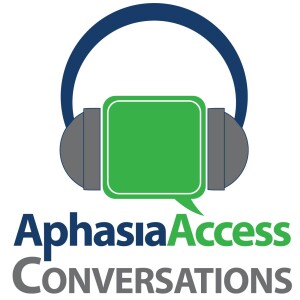
Episode #51 - Fostering Social Participation in a Long-Term Care Setting: A Conversation with Tavistock Scholar Jamie Azios
 2020-07-14
2020-07-14
Welcome to the Aphasia Access Conversations Podcast. I’m Jerry Hoepner, a faculty member in the department of Communication Sciences and Disorders at the University of Wisconsin – Eau Claire. I am privileged to introduce today’s guest Jamie Azios.
GUEST BIO:
Dr. Jamie Azios is an Assistant Professor at Lamar University in Beaumont, Texas. She is also a 2019 recipient of Tavistock Trust for Aphasia Distinguished Scholar. Jamie has expertise in qualitative research methodologies. Her research focuses on co-construction of conversation in aphasia and therapeutic interactions between providers and individuals with aphasia. Her recent work on social interactions of individuals with aphasia in long term care contexts.
In today’s episode you will:
Learn about common barriers to social interactions for persons with aphasia living in long-term care settings. Specifically, there is often a hyper-focus on care tasks which can get in the way of getting to know the person with aphasia during those interactions. Learn about the typical type of interactions that take place in long-term care settings. Reminder to focus on training partners – CNAs, nurses, other staff, visitors, family members, and everyday partners. Reminder to modify the physical environment to support persons with aphasia. Learn about ethnographic, qualitative research, where the researcher is embedded in the environment as they make their observations. Hear stories and examples of those deep, close observations. Reminder about the need to educate caregivers, family, and friends about aphasia. Reminder about the need to advocate for persons with aphasia. Learn about using key words to help scaffold comprehension for persons with aphasia and as a written support to point to during conversation. Reminder to use gestures as a multimodal support that also helps comprehension but also serves as a model for supporting expression. Consider your proximity and position in relation to persons with aphasia – get on the same level! Learn ideas about how to reduce social isolation in long-term care settings and beyond.More Episodes
Create your
podcast in
minutes
- Full-featured podcast site
- Unlimited storage and bandwidth
- Comprehensive podcast stats
- Distribute to Apple Podcasts, Spotify, and more
- Make money with your podcast
It is Free
- Privacy Policy
- Cookie Policy
- Terms of Use
- Consent Preferences
- Copyright © 2015-2024 Podbean.com






